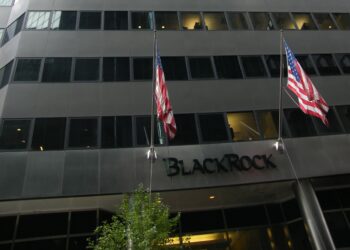Adarma collapsed owing CrowdStrike £327,000 and was experiencing “acute liquidity pressures” following the loss of two customers and the downscaling of others.
Those are among the fresh facts contained in a newly filed report from Interpath, which was appointed as administrator of the Scottish managed security services provider on 14 July.
Founded in 2012, Adarma ranked 108th in Oxygen 250 2025.
But the Edinburgh-based outfit, which specialised in the design, development and management of security operations for large companies, abruptly ceased trading and laid off 173 of its 176 staff last month.
Here we round up five nuggets that emerged from an administrator’s statement of proposals filed on Companies House last week.
1. Adarma was running on empty
The report threw new light on the “acute liquidity pressures” Adarma was experiencing in the period leading up to its collapse.
Having “performed well” following its acquisition by Livingbridge in 2019, Adarma endured “significant trading challenges” in 2024 and 2025, it explained.
According to management accounts, calendar 2024 revenues slumped to £37.6m, down from £44.7m in 2023, with adjusted EBITDA losses hitting £1.4m.
Despite Livingbridge handing it a further £3m 2024, Adarma continued to trade at a loss, with Interpath determining in March 2025 that it would likely run out of cash by June 2025.
2. Customer losses to blame
In its most recently filed annual accounts, Adarma said the revenue fall it recorded in 2023 partly reflected the decision by its largest consulting client to “insource” the previous year.
According to the administrator’s report, its downturn in performance was in fact driven by the loss of two “significant” customer contracts and the downscaling of other “key” customer relationships, as well as a shift in customer demand towards less profitable platforms.
3. Interpath called in 15 months before collapse
Although Adarma moved to appoint Interpath as administrator on 14 July 2025, Livingbridge first introduced it to the restructuring and advisory firm as far back as April 2024 to undertake a financial forecasts and options review.
As a result of the “deteriorating trading and financial performance”, Interpath was then engaged in March 2025 to review Adarma’s short-term cashflow position.
4. Sale efforts came to nothing
The report detailed how efforts to salvage the company – both before and around the time of administration – failed.
None of the offers Interpath received during efforts in May and June 2025 to explore external sale, refinancing or investment options could be executed, it said.
Interpath began planning for a potential administration on 7 July before sending a Notice of Intention to Appoint Administrators to customers on 10 July.
Its purpose was to explore whether short-term funding could be raised to enable it to temporarily continue trading while customers looked for alternative providers. Despite initial interest, no customer was willing or able to provide the necessary funding, however.
Several parties also expressed interest in acquiring elements of the company after the Notice of Intention to Appoint Administrators was lodged. None of these could provide the immediate funding required, however.
5. Creditor position “uncertain”
Adarma went under owing secured creditor Lloyds Bank £8.6m.
Trade creditors were owed £2.45m, with Scottish Enterprise (£1.51m) by far the largest of these.
Among its vendor trade creditors, CrowdStrike was the only one with a six-figure debt (£327,000).
Claims from employees totalled an estimated £364,000.
It is “uncertain” if there will be sufficient funds to enable a distribution to be made to either Lloyds Bank, employees or HMRC, Interpath said. It is “highly unlikely” that unsecured creditors – ie trade creditors like CrowdStrike – will get anything, it added.
The three staff retained to assist with the administration have now been made redundant, the report added.
CrowdStrike declined to comment further.














